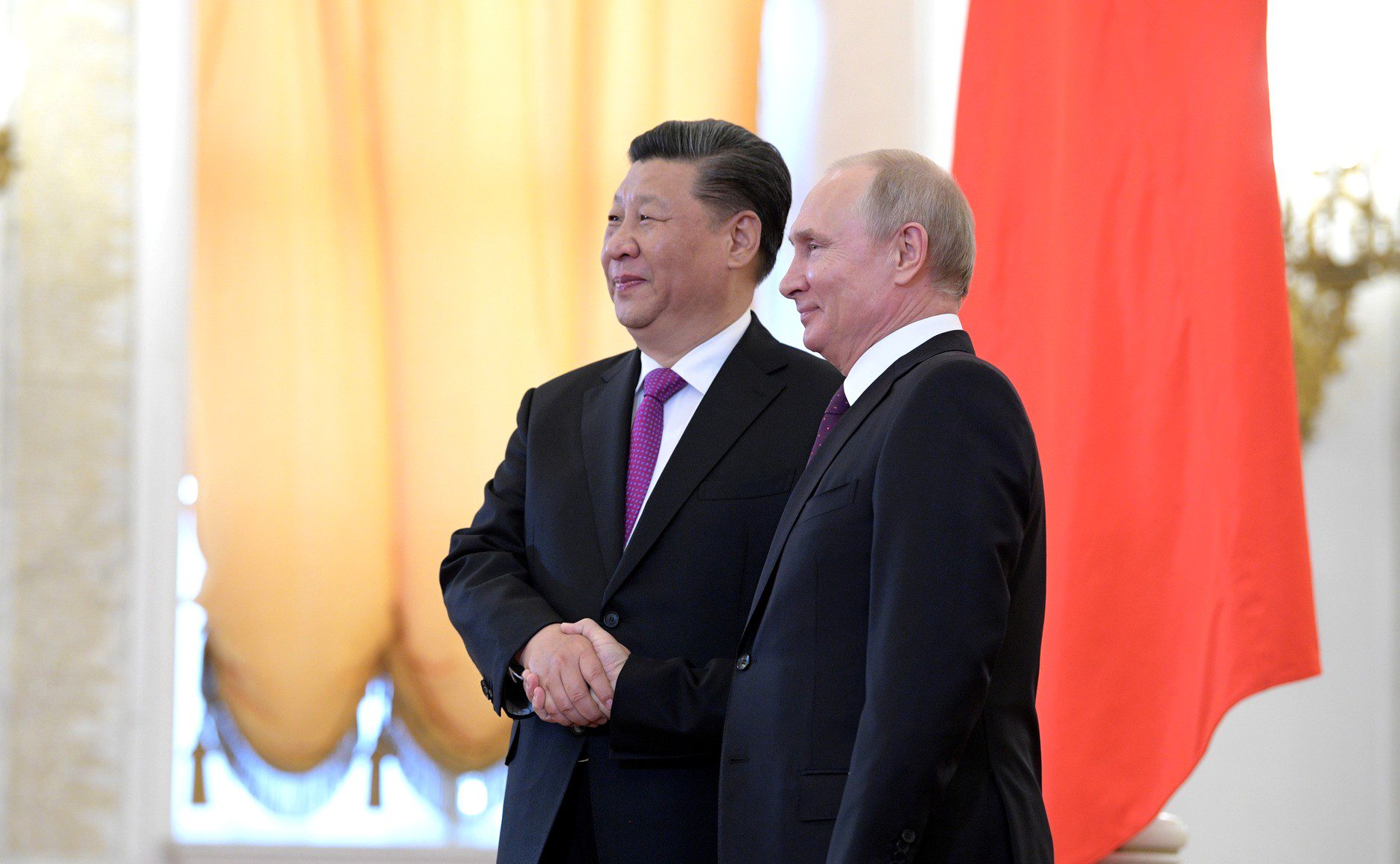
A recent Russian public television broadcast featured joint statements from the country’s President Vladimir Putin and Chinese President Xi Jinping indicating that the two will be reinforcing military collaboration. Addressing his Chinese counterpart, President Putin said:
We are expecting you, dear Mr. Chairman, dear friend, we are expecting you next spring on a state visit to Moscow … This will demonstrate to the whole world the strength of Russian-Chinese ties on key issues … You and I share the same views on the causes, course, and logic of the ongoing transformation of the global geopolitical landscape in the face of unprecedented pressure and provocations from the West.
These words reflect a real strengthening of commercial ties as well, as Putin emphasized, given that—following Western sanctions over Ukraine—Russia has become China’s principal supplier of crude oil. Russia has also increased the cap on the share of Chinese currency held in its National Wealth Fund. Russian dependency on the Yuan is thus at an all-time high, even as it drastically reduces dependency on the economies of the U.S. and those most closely aligned with it.
This also builds on the already existing ‘No Limits’ Strategic Partnership agreed to by Russia and China last February. Within this framework, the Kremlin has expressed its support for China’s position vis-a-vis Taiwan.
It has been pointed out that Xi Jinping’s remarks, both on this recent occasion and in general, are supportive of Putin’s policy, but guarded. Russia does indeed seem to have fewer options in terms of seeking geostrategic allies than China, and, while Moscow is breaking ties with U.S.-aligned countries, China maintains strong economic ties with all parties involved.
